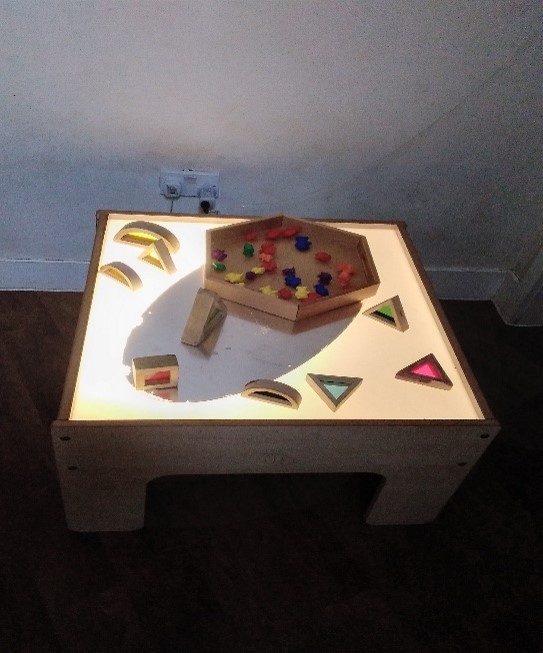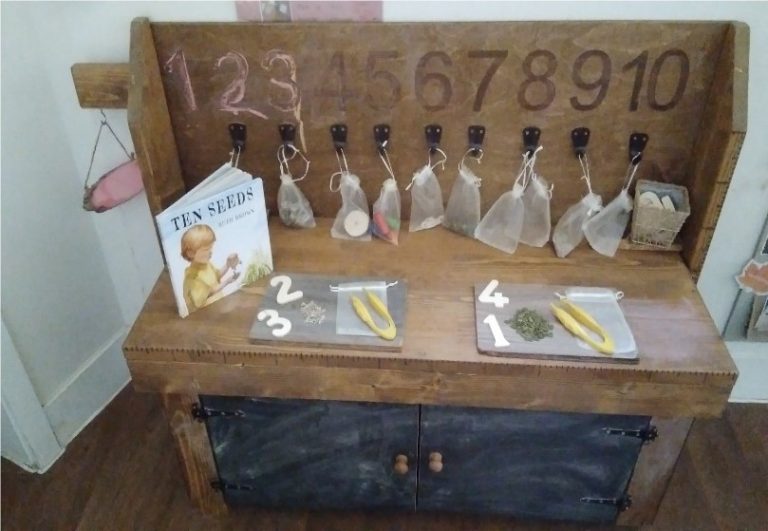The project began at a slow pace but after using some of the £2000 project money, for in house training, which was delivered to the staff in January. The training was interactive, sharing ideas and purposeful to our setting, and the staff became more aware of how to implement mathematical language and ideas in the nursery environment. The training was delivered after the staff completed a questionnaire, measuring the practitioners confidence levels.
The children actively engage in child led and adult led mathematical activities, ranging from shape positioning, bear sorting and ordering, measurements, number recognition, cooking activities, to name but a few.
The children share enthusiasm and motivation to learn, using the new resources, which have been purchased with the £2000 grant money. Resources include, numeracy resource trolley, which is designed to be used across the nursery, so the children can access the resources and transport around the nursery. Number logs, water tray, number blackboards, funnel sets, natural mathematical objects, safari animals, number books with puppets, as well as many other items were purchased, based around the children’s ongoing interests.
We have seen an increase in children’s positional language, number, and shape concepts, especially in the preschool children and identified that children in the setting are more engaged in their learning, when it is led by a practitioner. Some of the children are able to self-direct their play and learn independently, whereas others need support and some guidance.


